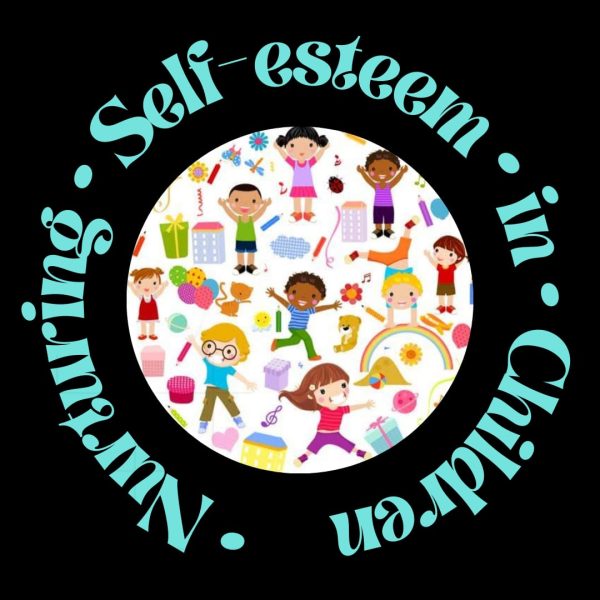Self-esteem means having an overall opinion about yourself – how you feel about your abilities and limitations. You feel good about yourself when you have healthy self-esteem, while low self-esteem makes you doubt yourself and your abilities and opinions.
Why Is Self-Esteem In Children Important?
As I had been an introvert and a low self-esteemed person in my childhood days, I wanted to ensure that I raised a confident child. Having worked as an HR and handled recruitments, I have interacted with many people and realized that confidence and self-esteem are the keys to success for an individual. Also, working towards raising importance on mental and emotional wellness, we must inculcate these traits at an early age instead of teaching grown-ups.
We often use the words like ‘introvert’ or ‘shy’ to identify people who are low on self-esteem. It is easy to mould young minds; hence building self-esteem in children prepares them to face and deal with any and every situation and gives them the confidence to accept themselves. This, in turn, will prepare them to face life challenges from an early stage of their lives.
Common Qualities of Having Low or Negative Self-esteem
- The child often feels frustrated, angry, anxious and sad, these being their primary moods.
- They are less interested in learning new things or interacting with new people.
- Have trouble making new friends as well as keeping older ones.
- They are very likely easy targets for teasing and bullying at different places.
- Usually, withdraw themselves from social groups and always love to be alone.
- They are more likely to give in to peer pressure, which may also lead to negative situations ahead in life.
- More likely to give up and avoid difficult situations as they are afraid of facing challenges.
- They will always procrastinate and keep things for tomorrow, which never comes.
There is an old saying that says, “Always train your tree, when it is young”. Speaking from my personal experiences, it isn’t easy to build confidence in your twenties. Hence, it is always better to boost some self-esteem in children when they are very young.
Common Signs of Having Positive and High Self-esteem
- The child feels respected and worthwhile.
- Feels confident to carry out their tasks independently.
- The child takes responsibility for their actions in every situation.
- They feel comfortable and secure in forming relationships and friendships.
- Try their best to handle difficult and challenging situations.
- They love interacting with different people.
- Open to learning new things.
- They are not easy to give in to and can positively handle peer pressure.
Nurturing self-esteem in children aged two to three years
Most children start pre-schooling at the age of 2.5-3 years, and hence we must start developing self-esteem in children at about the age of 2 years. Making kids confident and boosting their self-esteem does not necessarily mean involving them in huge crowds or making them do many activities. One can also develop it at home by using some most basic, mundane and overlooked activities.
I tried following activities with my child, which is helping him in decision-making, thereby enabling him to be responsible for his actions.
Allowing him to take his decisions
Start by giving 2 options with a ‘this or that question and gradually progress to allow them to answer independently without giving them any choices. Also, check these Innovative & Indoor DIY Activities For Toddlers to let Them engage and have fun.
📣 Loved what you read? Want to go deeper into conscious parenting? ✨ The Power of Manifestation in Parenting is now available — A soulful guide packed with real-life tools like affirmations, energy shifts, and sleep talk that I personally use with my son, Hitarth. 💛 Start your journey toward calmer, connected parenting today. 🎉 Launch Offer: Only ₹99 (limited-time price!) 📲 Instant download. No waiting. 👉 Grab your copy now!.
I ask him questions like;
- What color do you want to wear today?
- Get me the book of your choice for reading today.
Giving him a chance to say a ‘NO’
People with low self-esteem have difficulty when it comes to saying a ‘No’. Hence, I ensure that I bring him up in a manner that saying a ‘No’ is equally easy as saying a ‘Yes’.
Identify what triggers a ‘No’ for your child and encourage them to say it aloud. I usually ask him questions like:
- Do you want to wear a sweatshirt? (when it is hot)
- If he wants to watch a movie (he is not a screen baby, he usually says a ‘No’).
Teaching him to Share
Growing up in a joint family naturally demands kids to learn to share. However, with the nuclear setup and single child system in many households, this ‘Sharing’ trait needs to be taught explicitly.
My son being a single child, I encourage him to share by asking him to give one piece of his chocolate to everyone present in the room. With every piece that he hands over to everyone, he realizes the importance of giving, which also helps him to bond and connect with people.
Balanced Feedback
Whilst positive feedback helps boost confidence, it is also essential to point out their improvement areas. When I point him his area of improvement, I ensure to do that with a positive attitude so that his morale is not broken and further is ready to accept positive criticism.
Happy to Lose
Most parents, including me, are guilty of involving kids in things like letting us see who reaches the door first and then allowing them to win. There is nothing wrong with that, but teaching kids that losing is equally beautiful is also necessary. Especially after watching the film Chhichore, I feel it all the more important to teach our kids that losing is not the end of life and winning is not everything in life.
Final Words
With these tips, I believe, we all can develop self-esteem in children from an early age, so that we can raise a confident society, which is prepared to face any and every situation, does not give up easily but can accept positive criticism and work for the better outcome without feeling under-confident. Also, check out this amazing blog post on how much praise is too much for kids.
Your comments and shares do more than just support our blog—they uplift the amazing moms who share their stories here. Please scroll down to the end of the page to leave your thoughts, and use the buttons just below this line to share. Your support makes a big difference!




Such insightful message that you have shared! Yes, it is very important that we teach kids at younger age in order for them to have confident and disciplined future!